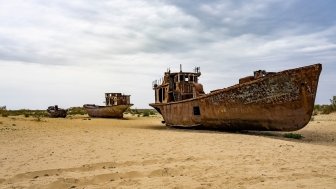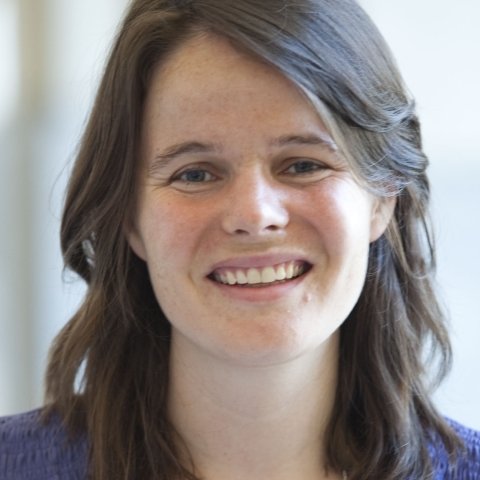Sarah Cameron
Former Fellow
Professional Affiliation
Associate Professor, University of Maryland, College Park
Expert Bio
Sarah Cameron is associate professor of history at the University of Maryland. She is a historian of Russia and the Soviet Union. Her research interests include environmental history, genocide and crimes against humanity, and the societies and cultures of Central Asia. Her first book, The Hungry Steppe: Famine, Violence, and the Making of Soviet Kazakhstan, examines a little-known crime of the Stalinist regime, the Kazakh famine of 1930-33. More than 1.5 million people perished in the disaster, a quarter of Soviet Kazakhstan’s population. The Hungry Steppe won numerous awards in the United States. It also provoked intense discussion in Kazakhstan, where the famine remains a sensitive topic in part due to Kazakhstan's close relationship with Russia. Russian and Kazakh translations of the book have been released. Dr. Cameron’s research has been supported by the Carnegie Corporation, the Harry Frank Guggenheim Foundation, Mellon/The American Council for Learned Societies, Fulbright and others. She received her PhD from Yale University.
Expertise
- Disaster Management
- Environment
- Food and Agriculture
- Governance
- History
- International Development
- Science and Technology
- Society and Culture
Wilson Center Project
The Aral Sea: Environment, Society, and State Power in Central Asia
Project Summary
Prof. Cameron’s project offers the first complete account of one of the twentieth century’s worst environmental catastrophes, the disappearance of Central Asia’s Aral Sea. Contrary to the conventional view of the Aral Sea as a specifically Soviet tragedy, Dr. Cameron finds that many states and international actors played a role in the catastrophe. While the book examines high politics, it is equally an account of the people who lived by the sea. It illuminates how the dramatic environmental shifts of the twentieth century changed the societies surrounding the sea. More broadly, the project underscores the urgency of finding more sustainable methods to produce cotton. Despite efforts to ban cotton from several Central Asian countries for their use of forced labor, it finds its way into US markets and the clothes that we wear. The Aral Sea story remains with us today.
Major Publications
- The Hungry Steppe: Famine, Violence, and the Making of Soviet Kazakhstan
- "People Arrive But the Land Does Not Move’: Nomads, Settlers, and the Ecology of the Kazakh Steppe,” in Eurasian Environmental History, ed. Nicholas B. Breyfogle (University of Pittsburgh Press, 2018), 43-59.
- “Questioning the Distinctiveness of the Ukrainian Famine,” Contemporary European History 27, no. 3 (2018): 460-464.
Previous Terms
August 1, 2011-April 30, 2012
Insight & Analysis by Sarah Cameron
- Article
- Environment
Life and Death of the Aral Sea | A Conversation with Wilson Fellow Sarah Cameron

- Past event
- History
The Hungry Steppe: Famine, Violence, and the Making of Soviet Kazakhstan

- Book
- Communism
The Hungry Steppe: Famine, Violence, and the Making of Soviet Kazakhstan




